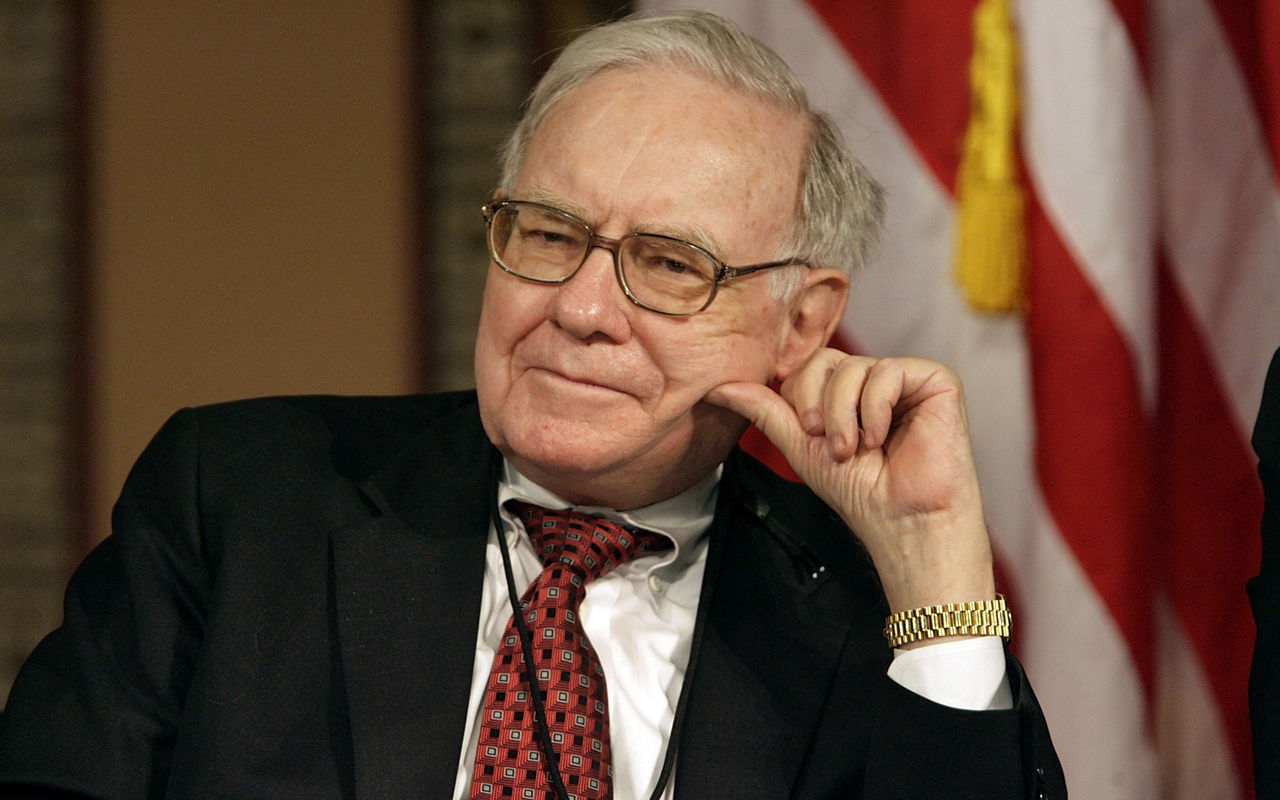The High Court on Fees
The ruling maintains the status quo, so investors should seek out low-cost funds and let fund companies that overcharge feel it in the pocketbook.

Profit and prosper with the best of Kiplinger's advice on investing, taxes, retirement, personal finance and much more. Delivered daily. Enter your email in the box and click Sign Me Up.
You are now subscribed
Your newsletter sign-up was successful
Want to add more newsletters?

Delivered daily
Kiplinger Today
Profit and prosper with the best of Kiplinger's advice on investing, taxes, retirement, personal finance and much more delivered daily. Smart money moves start here.

Sent five days a week
Kiplinger A Step Ahead
Get practical help to make better financial decisions in your everyday life, from spending to savings on top deals.

Delivered daily
Kiplinger Closing Bell
Get today's biggest financial and investing headlines delivered to your inbox every day the U.S. stock market is open.

Sent twice a week
Kiplinger Adviser Intel
Financial pros across the country share best practices and fresh tactics to preserve and grow your wealth.

Delivered weekly
Kiplinger Tax Tips
Trim your federal and state tax bills with practical tax-planning and tax-cutting strategies.

Sent twice a week
Kiplinger Retirement Tips
Your twice-a-week guide to planning and enjoying a financially secure and richly rewarding retirement

Sent bimonthly.
Kiplinger Adviser Angle
Insights for advisers, wealth managers and other financial professionals.

Sent twice a week
Kiplinger Investing Weekly
Your twice-a-week roundup of promising stocks, funds, companies and industries you should consider, ones you should avoid, and why.

Sent weekly for six weeks
Kiplinger Invest for Retirement
Your step-by-step six-part series on how to invest for retirement, from devising a successful strategy to exactly which investments to choose.
When it comes to mutual fund fees, the Supreme Court has essentially chosen to maintain the status quo. That means a fund's board of directors will continue to have wide latitude on setting fees charged to investors. It also means that investors who are unhappy with the fees should switch funds rather than sue in hopes of forcing a fund company to lower them.
The high court made the ruling recently in a case involving management fees charged by Harris Associates, which runs the Oakmark funds. In the case, some shareholders argued that the fees Oakmark mutual funds charged individual investors should be in line with the lower fees Harris charged institutional clients. An appellate court had earlier ruled that shareholders who sue over excessive fees must show that the fund's board had been misled. But the Supreme Court unanimously disagreed and sent the case back to the lower court for another look.
High hurdle. Suing to lower fund fees is already difficult, and the lower-court decision would have made it even harder. Instead, the high court largely upheld the Gartenberg case, which has governed lawsuits related to fund fees since 1982. Gartenberg held that suits can succeed only if the fee is so high that it is outside the range of what parties might reasonably negotiate in an arm's-length transaction (a fair transaction in which buyers and sellers have no relationship with one another). In nearly three decades under this standard, no fund company has ever lost a suit over fees.
From just $107.88 $24.99 for Kiplinger Personal Finance
Become a smarter, better informed investor. Subscribe from just $107.88 $24.99, plus get up to 4 Special Issues

Sign up for Kiplinger’s Free Newsletters
Profit and prosper with the best of expert advice on investing, taxes, retirement, personal finance and more - straight to your e-mail.
Profit and prosper with the best of expert advice - straight to your e-mail.
Still, the Supreme Court underlined a couple of key points from Gartenberg that may give shareholders a little more power. Specifically, the high court noted that if key information is withheld from a fund's board of directors, then courts should review the deal the board made on behalf of shareholders. The court also said that boards should examine whether the fees paid are comparable to those paid by other clients when the services and investment strategy are comparable.
What are the chances that a management company would withhold key information from a fund's board? Surprisingly, it seems to happen pretty often. In the Oakmark case, for instance, plaintiffs uncovered some discussion at Oakmark about keeping the board in the dark about what institutional clients are charged. In a case that American Funds won in a lower court and that is now on appeal, evidence showed that for at least two years American refused to tell directors about portfolio managers' incentives.
When directors evaluate charges, they begin with a so-called 15(c) report, which compares a fund's fees with those of competitors. Remarkably, most boards allow the fund company to define the peer group. In the Oakmark case, for example, Oakmark Fund's fees were compared with those of just nine other funds. By my count, there are 51 no-load, actively managed, large-blend funds with more than $1 billion in assets. So what happened to the other 41 funds that didn't make the peer analysis?
Little of what the management company tells a fund's board or how the board determines fees is in the public record until a lawsuit is filed. Consequently, investors have to sue first to find out whether they have a case. Regulators should make the process more transparent, and boards should take control of the 15(c) process. Maybe fund boards will act more vigorously to ensure that shareholders are getting a fair fee deal; maybe they won't. How lower courts -- in the Oakmark case and in another case, involving the Riversource funds -- respond to the Supreme Court's decision will determine the degree to which shareholders benefit.
In any case, the strategy that investors should follow is still clear: Seek out low-cost funds with strong managers and let fund companies that overcharge feel it in the pocketbook.
Columnist Russel Kinnel is director of mutual fund research for Morningstar and editor of its monthly FundInvestor newsletter.
Profit and prosper with the best of Kiplinger's advice on investing, taxes, retirement, personal finance and much more. Delivered daily. Enter your email in the box and click Sign Me Up.

-
 How Much It Costs to Host a Super Bowl Party in 2026
How Much It Costs to Host a Super Bowl Party in 2026Hosting a Super Bowl party in 2026 could cost you. Here's a breakdown of food, drink and entertainment costs — plus ways to save.
-
 3 Reasons to Use a 5-Year CD As You Approach Retirement
3 Reasons to Use a 5-Year CD As You Approach RetirementA five-year CD can help you reach other milestones as you approach retirement.
-
 Your Adult Kids Are Doing Fine. Is It Time To Spend Some of Their Inheritance?
Your Adult Kids Are Doing Fine. Is It Time To Spend Some of Their Inheritance?If your kids are successful, do they need an inheritance? Ask yourself these four questions before passing down another dollar.
-
 How I'm Going to Invest My Mega Millions Lottery Jackpot
How I'm Going to Invest My Mega Millions Lottery JackpotThe odds of winning the Mega Millions lottery are effectively zero, but here's how I'm investing my fortune should I hit the jackpot.
-
 Four Random Facts and Thoughts About Warren Buffett
Four Random Facts and Thoughts About Warren BuffettIf I love Warren Buffett so much why don't I just marry him?
-
 Investing in Gold Is Dumb
Investing in Gold Is DumbStocks are better than gold for both generating wealth and offering protection against inflation.
-
 What's So Scary About a Mega-Cap Tech Bull Market?
What's So Scary About a Mega-Cap Tech Bull Market?Bears say the market can't keep rallying when only five mega-cap tech stocks are driving returns, but history suggests otherwise.
-
 We Are Not in a Bull Market
We Are Not in a Bull MarketIt takes more than a 20% gain off the low to proclaim the beginning of a new bull market.
-
 Why I Don't Buy Stocks
Why I Don't Buy StocksIt's nearly impossible to beat the market – but it is cheap and easy to match it.
-
 Amy Domini on the Secrets of Sustainable Investing
Amy Domini on the Secrets of Sustainable InvestingESG An ESG pioneer says finding good corporate citizens is the best way to make money.
-
 Bitcoin Halving: What Does It Mean for Investors?
Bitcoin Halving: What Does It Mean for Investors?Technology 'Mining' for this cryptocurrency just became a lot more expensive